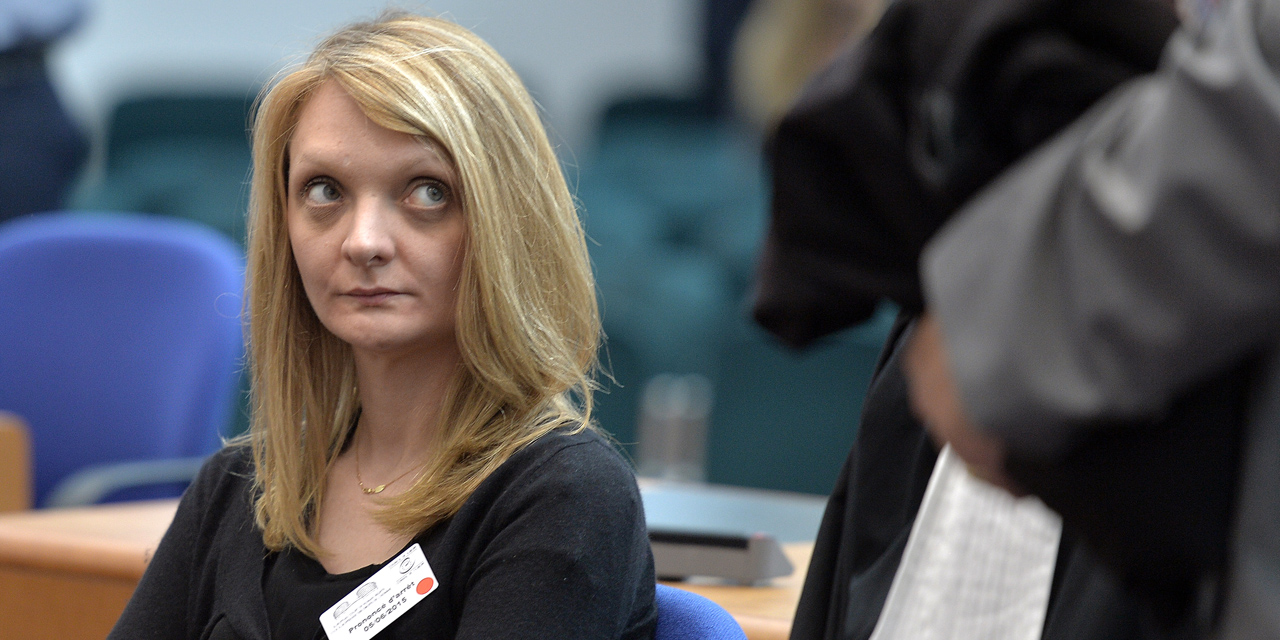STORY
Vincent Lambert has been in a vegetative state for eleven years. At his side, two clans oppose. His wife - who has long been in favor of stopping treatment - and Vincent Lambert's parents - have always been opposed to this decision. While the cessation of care began Monday morning, Christophe Hondelatte offers an exceptional double narrative in Hondelatte Raconte. Vincent Lambert seen by his wife (Monday) and by his mother (Tuesday). Two women, two looks, two different fights.
>> From 14h to 15h, Hondelatte tells Europe 1. Find the replay of the program of Christophe Hondelatte here
The accident
Rachel is 21 when she first meets Vincent at the hospital. She is a student in the psychiatric department of the Pont Saint-Martin hospital in Lorraine. He is a nurse, he is five years older than she is. She is immediately seduced, but believes it inaccessible. Yet two years after this exchange of views, the two young men share their first kiss. The beginning of their love story. In 2007, it is the marriage then, in the wake, Rachel Lambert becomes pregnant and gives birth to a little girl.
This simple and happy family life will come to an abrupt end on September 29, 2008. Rachel is still in her bathrobe when gendarmes ring at her door. Vincent just had a car accident. It's serious. His vital prognosis is engaged, he was taken to the emergency room of the Châlons-en-Champagne hospital. The medical staff briefly authorizes Rachel Lambert to see her husband: unconscious, perfused, intubated. The intensive care physician in charge of Vincent Lambert asks to see her. He presents him with four possible outcomes: Vincent gets away with no sequels; he comes out with a loss of sensibility; he does not wake up while remaining alive; he dies. Rachel Lambert, on the other hand, only hears two possibilities: life or death.
>> ALSO READ: Case Vincent Lambert: "It's a family conflict that doubles an ideological and political conflict"
"If something happens to Vincent, do you have to revive him?"
Ten days after the accident, sedation is stopped, the vital prognosis is no longer engaged. Rachel is at his bedside when Vincent opens his eyes. His eyes are veiled. She knows this look. She also knows Vincent's way of wrapping his arms. Rachel is a nurse and knows that these are signs of intense pain and severe neurological damage.
The doctors ask Rachel to stimulate Vincent when she comes to see him. She passes the music of their wedding, pours a few drops of the perfume of her daughter on the pillow ... In January 2009, he is transferred to the center of awakening of Berck-sur-Mer, but in front of the absence of evolution of his state, he is finally transferred to the Reims University Hospital.
There, for the first time, Rachel Lambert is confronted with the question of resuscitation by the hospital staff. "If something happens to Vincent, do you have to revive him?" He asks. "No, we do not revive it," she says. The hardest sentence of all his life, according to her.
"Minimal state of consciousness +"
After two years of status quo, Vincent Lambert is transferred to the COMA Science Group of Liège, at the initiative of the parents. The experts conclude to a diagnosis: Vincent Lambert is in "minimal state of consciousness +", he perceives the pain. The medical profession also pronounces for the first time the word "euthanasia" to evoke the case of Vincent. Rachel, she does not feel able to decide alone but she is convinced of one thing: "He, I'm sure he would have wanted," she wrote in his book. A speech therapist is mobilized at Vincent's bedside. She comes to put flavors on her lips, hoping for an answer. After 97 sessions: nothing.
In 2013, four and a half years after the accident, while Vincent Lambert is again at the University Hospital of Reims, Rachel is summoned by the doctors. They ask him if Vincent, during his lifetime, had expressed opinion if such a situation occurred. Rachel Lambert remembers very well having mentioned this subject with him the year of their marriage: "rather to be stung than to stay alive like a vegetable", he had said.
The tearing
The doctors then speak to him for the first time of the Leonetti law. They then begin their reflection which will eventually lead to a decision: start an end-of-life program. The beginning of the split between Rachel Lambert, in agreement with this decision, and the parents, who are totally opposed to it. The procedure will also be stopped, following the decision of the Administrative Court of Châlons-en-Champagne, seized by the parents of Vincent Lambert. In May 2013, the court ordered the restoration of Vincent Lambert's diet and artificial hydration.
This is the beginning of a long judicial battle between the two camps, back and forth between the courts, the Council of State, the European Court of Human Rights (ECHR) and the Court of Cassation. A new procedure finally opened in 2018, concluding the cessation of care. The parents' new appeals to the Conseil d'État and the ECHR were rejected. Vincent Lambert's treating physician announces to the family the interruption of treatments as of May 20, 2019.

